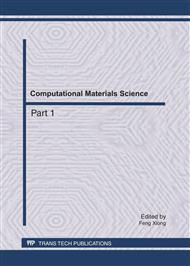p.1726
p.1733
p.1739
p.1745
p.1750
p.1755
p.1759
p.1763
p.1768
Study on the Transformation from CP-Nets to Game Theory
Abstract:
Researching preference is significative in artificial intelligence. The paper shows the concept and example of CP-nets on preference representation firstly. And then game theory with strategy preference is proposed. For the nature relation between CP-nets and game theory on preference, this paper attempts to transform the question of CP-nets to game theory on three points which is concept, model and essential question(optimal outcome and Nash equilibrium) and the proves are given on the heel. Finally, the future work on relation and equivalence of CP-nets and game theory is presented.
Info:
Periodical:
Pages:
1750-1754
Citation:
Online since:
July 2011
Authors:
Keywords:
Price:
Сopyright:
© 2011 Trans Tech Publications Ltd. All Rights Reserved
Share:
Citation:


